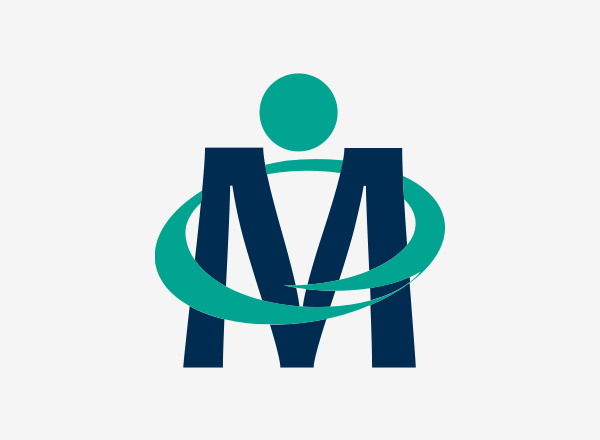Every woman needs and deserves access to quality women’s health services, like an experienced obstetrics/gynecology (OB/GYN) practice they can trust with their health and wellness
Gynecologists specialize in women’s reproductive health, and obstetricians deliver babies and care for women during pregnancy and postpartum. An OB/GYN is trained in both these specialties.

While some women may think they don’t need to see an OB/GYN unless they’re pregnant, the truth is, women need gynecological care throughout their lives.
In this article, we’ll touch on some of the conditions that impact your health that a specially trained women’s health services professional can help prevent, detect, and treat.
Which conditions do OB/GYNs diagnose and treat?
There are many health conditions affecting women that an OB/GYN will specialize in, including gynecologic cancers. Cancer is the second leading cause of death in women in the United States after heart disease. But, with early detection and intervention, women can have better outcomes and live longer lives.
In the following paragraphs, we’ll touch on a few of these cancer types, as well as other conditions that an OB/GYN can treat or help you prevent.
Cervical cancer
The American Cancer Society estimates that about 15,000 women in the United States will be diagnosed with invasive cervical cancer in 2021. Nearly all cases of cervical cancer are directly tied to human papillomavirus (HPV).
With advancements in screening procedures, like the Pap test and HPV test, outcomes are much better for women who regularly seek women’s health services and get their recommended cervical cancer screenings. There is also an HPV vaccine that can prevent HPV infection.
Breast cancer
Breast cancer is the second most common type of cancer for women after skin cancer. One in eight women will get a breast cancer diagnosis in their lives. Monthly breast self-exams can help you detect changes in your breasts that may need further evaluation by a doctor. Seeing your women’s health services provider for regular mammograms can help doctors detect breast cancer in its earlier stages.
Like so many other survivors, Barbara Moon Herman experienced firsthand the importance of regular breast cancer screening:
“After the mammogram, I received a phone call that told me about my results. They had found cancerous cells in my left breast, but I had never had any symptoms or lumps,” recalls Barbara. “Before I could really grasp the situation, I made an appointment to discuss the next steps. Within a matter of minutes, there was a plan in place.”
Ovarian cancer
Ovarian cancer is a group of diseases originating in the ovaries or areas of the fallopian tubes and the peritoneum. It’s a top health concern for women over 50—though it can strike women at any age.
While there are currently no screening tests for ovarian cancer, seeing your women’s health services provider for regular pelvic exams is crucial. During a pelvic exam, the doctor will feel your ovaries’ size, shape, and consistency.
There are also some symptoms to make your doctor aware of if they occur for more than a few weeks, as they could be potential signs of ovarian cancer: abdominal swelling or pain, digestive problems, pelvic pain, or the constant feeling of needing to urinate.
Infertility
While Infertility is a struggle for many women, it’s not just a “woman’s problem.” One in eight couples in the United States will experience infertility problems, with only about one-third of infertility cases being traced back to women. Another third can be traced back to men, and the remaining infertility cases are typically a combination of factors.
Fertility specialists work with couples who are having trouble getting pregnant. A couple can participate in fertility testing to better understand what’s causing the fertility challenges. In many cases, the fertility specialist can use that information to develop a plan to help improve the couple’s chances of conceiving.
Postpartum depression
Sometimes referred to as “the baby blues,” postpartum depression impacts nearly 15% of all mothers in the weeks or months after giving birth. Symptoms can include feelings of worry, unhappiness, fatigue, irritability, crying spells, or trouble sleeping.
While mild or temporary mood disturbances are relatively common during the postpartum period, women who experience more severe or ongoing sadness and anxiety could be experiencing postpartum depression. They should seek help from a women’s health services professional right away.
Other conditions treated by women’s health services
There are many more conditions that a qualified women’s health services provider is specially trained to diagnose and treat, including (but not limited to):
- Abnormal bleeding or prolonged periods
- Bladder infections
- Cervical dysplasia
- Endometriosis
- Menopause and perimenopause
- Ovarian cysts and ovarian masses
- Overactive bladder
- Sexually-transmitted diseases
- Urinary incontinence
- Urinary tract infections
- Uterine fibroids and uterine polyps
- Vaginal yeast infections
Women’s health services close to home
Logansport Memorial Hospital’s board-certified obstetricians and gynecologists are experts in all aspects of female reproductive health.
From routine exams and preventative screenings to caring for you through pregnancy and childbirth, we’re passionate about providing high-quality, multidisciplinary women’s health services to patients of all ages.
Get comprehensive OB/GYN care for the most common—or most complex—women’s health conditions from a team you can trust, right here in Logansport.
You might also like:
- Cervical Cancer: Warning Signs and Essential Screenings
- Top Health Concerns for Women Over 50
- Why Breast Self-Exams Are Important (and How to Do Them)




